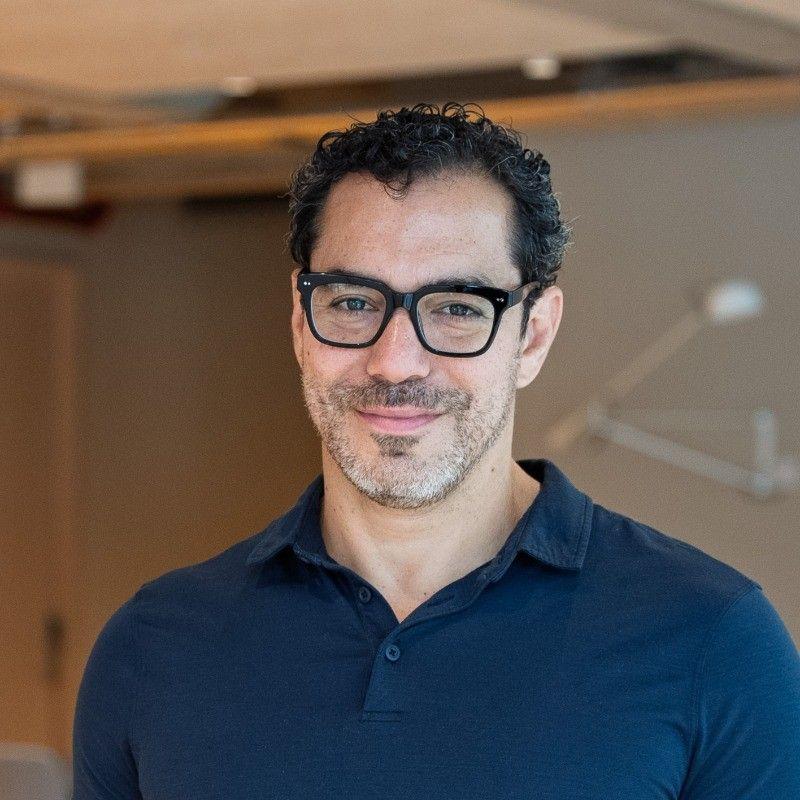Paid Raises $21M to Revolutionize AI Agent Billing for SaaS Companies
4 Sources
4 Sources
[1]
Paid, the AI agent 'results-based billing' startup from Manny Medina, raises huge $21M seed | TechCrunch
Manny Medina, previously best-known as the founder of sales automation startup Outreach ($4.4 billion valuation), has wowed investors with his young startup, Paid. Paid just closed an oversubscribed $21.6 million seed round led by Lightspeed. With the €10 million pre-seed round it raised in March, London-based Paid has already raised $33.3 million and hasn't even hit its Series A yet. A source familiar with the deal says the startup's valuation is over $100 million. Paid came out of stealth in March offering an interesting contribution to the AI agentic world: The company doesn't offer agents. It offers a way for agent makers to charge their customers for these worker algorithms, based on the value their agents provide. This is a growing theme in AI, sometimes called "results-based billing." Paid promises to help agent makers "start charging for points of margin saved by their customers," Medina describes. It's a new way of charging for software for the AI age. This is instead of the unlimited use, per-user fees of the SaaS era, or the unlimited use, buy-it-once-and-install-it fees of the client/server era. Per-user fees don't work because agent makers pay usage fees to the model providers as well as to cloud providers. Unlimited use could drive them into the red. (The vibe coding startup world tends to suffer from this issue.) Agent providers instead "need to show the value the agent is delivering to your customers, because agents are running in the background for the most part," Medina tells TechCrunch. If agents do work as advertised, then they'll be assigned increasingly more, with their growing workloads going unnoticed. "If you're a quiet agent, you don't get paid," Madina says. "You need an infrastructure that allows the agent to charge for the additional work that the agent is doing," But charging a monthly fee for a limited number of credits -- following the model makers and vibe coders -- is risky for agent-makers, too. That's because companies don't want to pay for AI slop, which is still what most AI produces. After billions spent on AI pilots, some 95% of enterprise projects were found to have no value, with only 5% put into production, according to a recent study from MIT. Companies don't want to pay agents to produce more emails that no one reads. One of the startup's early customers, for instance, is Artisan, the viral sales automation startup. (By the way, you can hear Artisan's CEO Jaspar Carmichael-Jack speak on the topic at TechCrunch Disrupt next month.) But Paid is also starting to see success with SaaS companies looking at agents for their next big growth. The startup just landed ERP vendor IFS as a new customer, it said. Lightspeed's Alexander Schmitt says the venture firm has invested "more than $2.5 billion into AI infrastructure and application layer companies over the last three years," and has witnessed firsthand that most AI pilots fail. "The core of that problem is that no one can really attach value to what agents are doing today," Schmitt said. Schmitt thinks that Paid is, so far, unique in its approach, saying "it's something that we haven't seen someone else build." No doubt more competition for agentic results-based billing will come if it really does help agents enter the workforce en mass. New investor FUSE and existing investor EQT Ventures also participated in the round.
[2]
Paid, a new AI agent billing startup led by Manny Medina, raises $21M seed from Lightspeed, FUSE, others
Manny Medina, co-founder and former CEO of Seattle sales company Outreach, is off and running on his new startup adventure with a fresh $21 million seed round for Paid. Founded earlier this year, the London-based company helps companies with monetization and billing for their AI agents. Medina previously about this topic in a business advice column for GeekWire, noting the challenges around AI agent monetization given the fundamental differences between agents and traditional software-as-a-service. Paid helps companies create pricing models that align with how customers get value and lets them tweak their AI agent code to allow for different pricing mechanisms. "We're building the infrastructure that lets SaaS companies break free from the seat-based trap and return to growth," Medina wrote on LinkedIn. TechCrunch reported that Paid is already valued north of $100 million. Lightspeed led the big seed round. "This investment also reflects our broader conviction about where AI value creation is heading: the next wave of AI value will come from infrastructure that operationalizes AI deployment at scale and application companies that harness the value created," Lightspeed partner Alexander Schmitt wrote in a blog post. Bellevue, Wash.-based FUSE also participated in the round. "Paid is essential for AI native companies and SaaS companies to monetize and win in 2025," FUSE founding partner Kellan Carter wrote on LinkedIn. Seattle-based Founders' Co-op previously invested in Paid. Medina, who is now based in London, stepped down as CEO at Outreach in September 2024. He became executive chairman of the company's board at the time and is now a board member. Outreach, launched in 2014, helps companies improve their seller workflows and win more deals. The company has raised nearly $500 million and reached a $4.4 billion valuation after raising $200 million in 2021. Outreach grew rapidly during the pandemic, but went through multiple rounds of layoffs over the past few years. The company is now led by CEO Abhijit Mitra, who joined the company in 2023 as its president of product and technology. Medina co-founded Outreach in 2014 with Wes Hather, Gordon Hempton, and Andrew Kinzer. Hather and Hempton worked on a couple startups in recent years and are now focused on construction software startup Specbook. Kinzer recently shut down a smart fridge company and recently founded a stealth startup, according to LinkedIn.
[3]
Outreach, Palantir, And Salesforce Veterans Raise $21M For Paid.ai To End Seat-Based SaaS Billing With AI Agent Infrastructure - Palantir Technologies (NASDAQ:PLTR), Salesforce (NYSE:CRM)
Paid.ai on Sunday announced that it closed a $21 million oversubscribed seed round led by Lightspeed Venture Partners. FUSE and existing investor EQT Ventures participated in the round, which brings the startup's total funding to $33.3 million. Paid.ai aims to solve a mounting problem for software businesses, namely, how to charge for AI agents that eliminate human workers and traditional seat-based pricing models. Manny Medina, who co-founded sales engagement platform Outreach, leads Paid.ai alongside Manoj Ganapathy, who built billing infrastructure at Salesforce (NYSE:CRM), Raj Dosanjh, an early Palantir Technologies (NYSE:PLTR) employee, and Arnon Shimoni, who joined Pleo during its early stages. Don't Miss: If there was a new fund backed by Jeff Bezos offering a 7-9% target yield with monthly dividends would you invest in it? Have $100k+ to invest? Charlie Munger says that's the toughest milestone -- don't stall now. Get matched with a fiduciary advisor and keep building Early Movers See 40% Revenue Surge Paid.ai described its platform as a billing infrastructure designed to help software-as-a-service firms abandon seat-based pricing in favor of outcome-driven models tailored for AI agents. Seat counts are dropping across the industry, and the company said customers are unwilling to pay per seat for software that reduces headcount. Paid.ai pointed to slowing expansion across publicly traded SaaS companies, with many now reporting single-digit growth or outright declines. According to the company, this trend reflects a broader workforce shift in which AI agents are replacing teams that once drove seat-based subscription revenue. The company said half of the global workforce is expected to consist of AI agents by 2030, making per-seat pricing unsustainable. Paid.ai described the change as an inflection point similar to the move from on-premise to cloud software, warning that companies failing to adapt risk falling behind. Early adopters of AI agent billing are seeing revenue gains of 20% to 40% within six months, with faster sales cycles and stronger customer retention, the company said. Trending: Microsoft's Climate Innovation Fund Just Backed This Farmland Manager -- Accredited Investors Can Join the Same Fund Paid.ai's Model for the Agent Economy Paid.ai's platform core features include value-proof dashboards that demonstrate the business impact of agents, custom pricing systems aligned to performance, and cost-tracking tools that measure profitability at both the customer and agent level. Paid.ai also offers business intelligence functions that allow SaaS companies to run what-if scenarios, analyze margins, and adapt billing structures in real time. The company described the SaaS-to-agent transition as its duty, reinforcing the view that adapting pricing models is no longer optional. 12-Month Window to Dominate or Disappear Paid.ai said customers are already demanding outcome-based pricing that reflects the value AI agents deliver rather than the number of employees using software tools. Advances in technology now allow agents to manage complex workflows with predictable costs, creating an opening for scalable business models. See Also: If You're Age 35, 50, or 60: Here's How Much You Should Have Saved Vs. Invested By Now The company added that its mission is to "grow the AI agent economy by helping builders get paid for their agents." Paid.ai's infrastructure is available for SaaS companies ready to make the transition, with founders encouraging leaders to act quickly or risk losing competitive ground. Companies have approximately 12 months to execute the transition successfully, the startup said. Organizations that complete the shift will dominate their categories, while those that delay face displacement by AI-first competitors. The funding will accelerate Paid.ai's roadmap for SaaS companies making the agent transition, according to the statement. Read Next: They Sold Their Last Real Estate Company for Nearly $1B -- Now They're Building the Future of U.S. Industrial Growth Image: Shutterstock CRMSalesforce Inc$240.300.59%OverviewPLTRPalantir Technologies Inc$175.43-6.21%Market News and Data brought to you by Benzinga APIs
[4]
Paid Raises $21 Million to Help SaaS Companies Sell AI Agents | PYMNTS.com
This move extends Paid's original mission of helping builders get paid for their agents, the company said in a Sunday (Sept. 28) blog post. Public SaaS companies are seeing their growth slow and their core business model break down because seat counts are dropping as AI agents replace entire teams and customers refuse to pay "per seat" for software that eliminates seats, Paid Co-Founder Arnon Shimoni said in the post. "The route is clear, and smart SaaS companies are already selling AI agents," Shimoni said in the post. "Early movers are seeing 20-40% revenue increases within 6 months, higher retention rates and much faster sales cycles." For SaaS companies that haven't made that transition, Paid provides an infrastructure layer that helps by handling customer value proofs, custom pricing, outcome- and value-based pricing that replaces seats, true cost tracking for each agent, and AI business intelligence, according to the post. "The SaaS industry is at the biggest inflection point since on-prem to cloud," Shimoni said in the post. "Companies that make the transition to AI agent business models in the next 12 months will dominate their categories. Those that don't will get left behind." Paid's seed round was led by Lightspeed Venture Partners, according to the release. Alexander Schmitt, partner at Lightspeed, said in a Sunday blog post that the impact and cost of AI agents cannot be accurately measured with current tools and that this opacity threatens to stall the AI agent revolution. "AI agents, who promise to be autonomous digital workers, require rebuilding the entire economic framework for how we price, track and monetize digital labor from the ground up," Schmitt said. "Traditional SaaS pricing models simply don't work for AI agents." Paid's solution has helped current customers capture fair value in comparison to the performance of their AI agents and accelerate their deployment of AI agents, Schmitt said in the post. Paid announced its launch in March, at which time it had raised about $10.8 million to scale its financial infrastructure that helps the builders of AI agents get paid.
Share
Share
Copy Link
Paid, a startup led by Outreach founder Manny Medina, secures $21.6 million in seed funding to transform how SaaS companies monetize AI agents. The company aims to replace traditional seat-based pricing with outcome-driven models tailored for the AI era.
A New Era of AI Agent Billing
Paid, a London-based startup, has successfully raised $21.6 million in an oversubscribed seed round, bringing its total funding to $33.3 million
1
. Led by Manny Medina, the founder of sales automation giant Outreach, Paid is tackling a critical challenge in the evolving landscape of artificial intelligence: how to monetize AI agents effectively.
Source: GeekWire
The Problem with Traditional SaaS Pricing
As AI agents increasingly replace human workers, the traditional seat-based pricing model for software-as-a-service (SaaS) companies is becoming obsolete. Paid aims to solve this mounting problem by offering a new billing infrastructure designed for the AI age
3
.Paid's Innovative Solution
Paid's platform enables AI agent makers to charge based on the value their agents provide, a concept known as "results-based billing"
1
. This approach allows companies to:- Demonstrate the business impact of agents through value-proof dashboards
- Implement custom pricing systems aligned with performance
- Track costs and profitability at both customer and agent levels
- Run what-if scenarios and adapt billing structures in real-time
3

Source: PYMNTS
Early Success and Industry Impact
Early adopters of Paid's AI agent billing system are reporting significant benefits:
- 20-40% revenue increases within six months
- Faster sales cycles
- Stronger customer retention
4
These results highlight the potential for Paid's solution to reshape the SaaS industry, which has been experiencing slowing growth and declining seat counts due to AI agent adoption
3
.Related Stories
The Team Behind Paid
Manny Medina leads Paid alongside a team of industry veterans:
- Manoj Ganapathy: Former billing infrastructure expert at Salesforce
- Raj Dosanjh: Early employee at Palantir Technologies
- Arnon Shimoni: Early team member at Pleo
3
Investor Confidence and Future Outlook
The oversubscribed seed round was led by Lightspeed Venture Partners, with participation from FUSE and existing investor EQT Ventures
2
. Alexander Schmitt of Lightspeed emphasized the uniqueness of Paid's approach and its potential to solve the valuation problem for AI agents1
.With projections suggesting that half of the global workforce could consist of AI agents by 2030, Paid is positioning itself at the forefront of a major shift in the software industry
3
. The company asserts that SaaS businesses have approximately 12 months to successfully transition to AI agent-based models or risk being left behind by AI-first competitors3
.
Source: Benzinga
References
Summarized by
Navi
[1]
[2]
Related Stories
Recent Highlights
1
Pentagon threatens Anthropic with Defense Production Act over AI military use restrictions
Policy and Regulation

2
Google Gemini 3.1 Pro doubles reasoning score, beats rivals in key AI benchmarks
Technology

3
Anthropic accuses Chinese AI labs of stealing Claude through 24,000 fake accounts
Policy and Regulation








